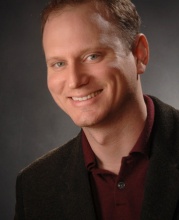CPSRC Seminar Series - Ants Don't Use WiFi: Enabling Robotic Agents to Collaborate and Compete without a Communication Network
CPSRC Seminar Series - Ants Don't Use WiFi: Enabling Robotic Agents to Collaborate and Compete without a Communication Network
Abstract:
In the animal world there is no WiFi---agents collaborate and compete by sensing and predicting the actions of teammates, rivals, predators, and prey. Likewise, in the engineered world, many of the most promising applications for autonomous robots require them to interact with other agents in the world by sensing and predicting their actions. Autonomous driving in traffic, collision avoidance for UAVs, and human-robot teaming are key examples where a wireless network either cannot exist, or will not exist for some time. In competitive scenarios, such as racing or pursuit-evasion, agents would not want to communicate even if they could. In this talk I will describe several recent examples from my lab of algorithms enabling multiple robotic agents to interact, both collaboratively and competitively, without a communication network. I will discuss a communication-free multi-robot manipulation algorithm by which many simple robots cooperate to transport a payload too large for any one of them to move alone. I will describe a highly scalable collision avoidance strategy, and a related pursuit-evasion strategy, that only requires agents to sense the positions of nearby neighbors. Finally, I will present a game theoretic receding horizon control algorithm for autonomous drone racing, in which drones sense each other's position with a monocular camera. I will show results from hardware experiments with ground robots, scale autonomous cars, and quadrotor UAVs collaborating and competing in the scenarios above.
Bio:
Mac Schwager is an assistant professor of Aeronautics and Astronautics at Stanford University. He directs the Multi-robot Systems Lab (MSL) where he studies distributed algorithms for control, perception, and learning in groups of robots and autonomous systems. He is interested in a range of applications including cooperative surveillance with teams of UAVs, agile formation control and collision avoidance for UAVs, autonomous driving in traffic, cooperative robotic manipulation, and autonomous drone racing. He obtained his BS degree from Stanford, and his MS and PhD degrees from MIT. He was a postdoctoral researcher in the GRASP lab at the University of Pennsylvania, and in CSAIL at MIT. Prior to joining Stanford, he was an assistant professor at Boston University from 2012 to 2015. He received the NSF CAREER award in 2014, the DARPA YFA in 2018, and has received numerous best paper awards in conferences and journals including the IEEE Transactions on Robotics King-Sun Fu best paper award in 2016.


